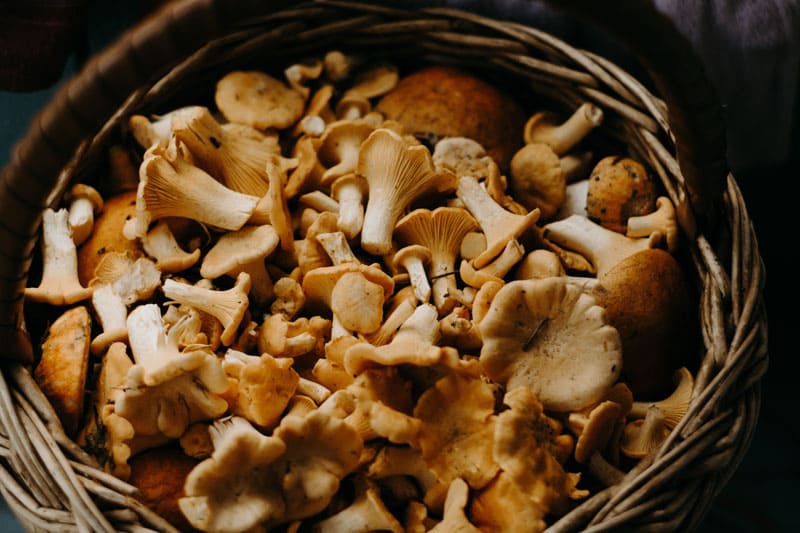The mushroom season is in full swing. Forest, wild mushrooms often appear on our plates in autumn and are an addition to many dishes. The edible ones are safe for humans; at most they can cause indigestion. Is it the same with dogs? Let’s find out!
Are wild forest mushrooms bad for dogs?
First of all, we need to realise what kind of mushrooms we are dealing with. A humorous proverb says that all mushrooms are edible, but some are only edible once J. While a human who is familiar with a mushroom atlas is able to ensure safe consumption, a dog certainly cannot.
Some people mistakenly think that if something is harmful for a dog, it won’t eat it. This is a mistake, the dog can unfortunately try to taste the poisonous mushroom. Some mushrooms even have an attractive smell for a dog’s nose, which encourages him to try it. Therefore, the first rule we should adopt is not to allow the dog to eat mushrooms on its own, be it during walks in the forest or even while bushwhacking on the home lawn.
Sometimes dog owners get the idea to deliberately toss a human-tasty and edible mushroom or cep to their pet. This is not advisable. Although in small quantities eating such a mushroom may not harm the dog, on the other hand, there is no logical reason to give such a mushroom to a dog. In such cases, the dog will not receive any nutrients and is at risk of digestive problems and indigestion.
Can cultivated mushrooms be given to dogs?
In general, cultivated mushrooms sold in supermarkets like mushrooms should not harm our pets. Of course we are talking about healthy dogs, without dog food allergies or other diseases. However, it’s worth considering if there’s any sense in including mushrooms in the dog’s diet – they’re completely unnecessary. It is also worth paying attention to additives. In our diet, we often like to add extra ingredients such as spices, salt or oil – which can have a negative impact on the dog’s digestive system.
Symptoms of mushroom poisoning in dogs
It can happen that your dog finds and eats mushrooms on its own during a walk. We are not always able to control this. If the mushroom turns out to be poisonous, we can expect symptoms from the dog’s body. Depending on the type of mushroom, poisoning can have various effects, the most common of which are
- Vomiting
- Diarrhoea
- Salivation
- Weakening
- Lethargy
- Coma
- Epileptic symptoms
- Liver failure
- Jaundice
- Abdominal pain
- Death
How to treat mushroom poisoning in a dog?
If we notice worrying symptoms, we should immediately go to the vet. It is worth taking a sample of the mushroom consumed by the dog, wrapped in a paper towel. This will allow the vet to determine the toxin that has harmed the dog. If the mushroom has been eaten recently the vet will most likely induce vomiting, and administer medication to counteract the toxin in question. Further treatment will consist of symptom relief.
Should you give mushrooms to dogs?
The definitive answer to this question is no! Mushrooms are not needed in a dog’s diet, they carry many risks. From indigestion to poisoning, they can even lead to death. No matter how safe a particular mushroom is in a dog’s diet, it’s a good idea to treat your pet to a safe vegetable or fruit instead. Take a look at what vegetables your dog can eat.




